Cork Education Support Centre marking five decades of supporting teachers
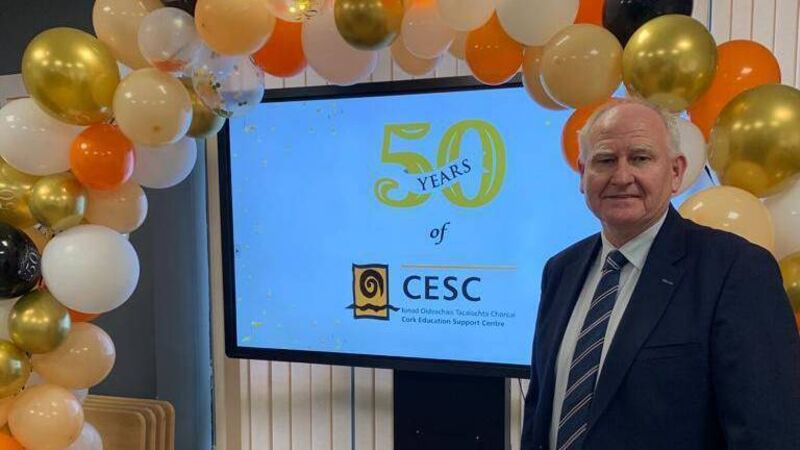
Sean Horgan the current director of the Cork Education Support Centre.
THE Cork Education Support Centre (CESC) celebrated 50 years of providing support for teachers in 2023.
Since its establishment in 1973, the centre has supported for primary, post-primary, national, regional, and local professional development for teachers and the education community across Cork city and county.
Director Seán Horgan outlined the history of the last five decades with The Echo, explaining: “Generations of the educational community in Cork have reason to be very grateful to those in the early 1970s who set about the establishment of what was then called Cork Teacher Centre.
“These pioneering teachers — like many others throughout Ireland at the time — sowed the seeds of a support service for teachers which has grown into the Educational Support Centre network we are familiar with today.”
He explained that the demand for a teachers’ support network “grew from the ground up”, as groups of teachers began convening informal groups, particularly primary teachers — then termed national teachers — following the introduction of the new primary curriculum in 1971.
The three Rs
“This relatively new ‘discovery method’-based curriculum reflected the latest research of the 1960s and must have proved somewhat challenging to older teachers who were used to the more traditional ‘three Rs’ and rote learning off by heart,” explained Seán.
The three Rs is a term coined in the early 19th century and used for three basic skills taught in schools: Reading, writing, and arithmetic, with the ‘Rs’ referring to Reading, wRiting, and aRithmetic.
All of this change, coupled with the lobbying of these informal teacher support groups, persuaded the Department of Education to support teachers in a practical way, so 10 teacher centres were established in 1973, CESC among them.
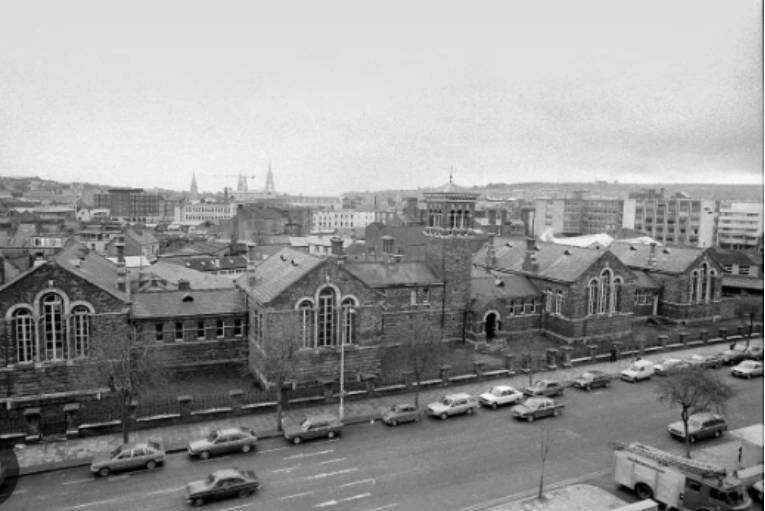
The first full-time director was Bart Bambury, who went on to lead the development of the teacher/education centre for the next 30 years from very humble beginnings — a few spare rooms in the Modh/Model School in Anglesea St, where the centre remained for 10 years.
Mr Horgan explained: “In those days of homemade charts and flashcards, the centre did a brisk trade in its lamination service —laminating posters and charts which would stand the test of chalkdust for many years.
The trusty “teilgóir” (usually one per school) for the use of “stílscannáin” used in the teaching of Buntús and Comhrá Gaeilge was now being used to project filmstrips on nature, science, history, and geography.
“The library in the Teacher Centre was a treasure trove of these filmstrips, which could be borrowed for a week or two.
“These were soon augmented with vast sets of video tapes, cassette tapes, and records — a major attraction for pupils in pre-whiteboard and internet days.”
Each May, the Cork Teacher Centre summer course brochure would be posted to schools with an application form enclosed, which was eagerly photocopied, completed, and hand-delivered to the centre that evening to ensure the securement of a place on a course and the resultant three ‘course days’ (now ‘EPV days’) to be used the following school year.
Changes
The next move for the centre was to the Crawford Art Gallery in Emmett Place in 1984, Mr Horgan said, explaining that this was one of just many changes happening for Cork teachers at the time.
“Advances in IT use in school continued to develop with the use of overhead projectors, CDs, and the first use of computers — teachers pioneering the use of computers in schools in the Cork area welcomed the continued expansion of Apple Computers at their Hollyhill site.”
The centre became the base for meetings of teachers involved in new initiatives such as the Home School Community Liaison Scheme (later the Deis programme), the Remedial Education (later the Special Education Provision), the substitute teacher list, and various others.
Hotels, or schools themselves, after the children had left, were often used for in-service training and meetings due to the lack of space in the centre, so in the mid-1990s, having outgrown its premises, the centre moved to its third home — the upstairs offices in Robert Scott House on St Patrick’s Quay.
Teacher centres at the time, working hand in hand with the newly established Primary Curriculum Support Service (PCSP), were to be front and centre of the delivery of teacher in-service ahead the impending Primary School Curriculum (1999), a significant landmark in the history of primary education in Ireland.
The management committee began looking for a new purpose-built premises, eventually purchasing a building located on a prominent site on the Mardyke, directly opposite the main gates of University College Cork.
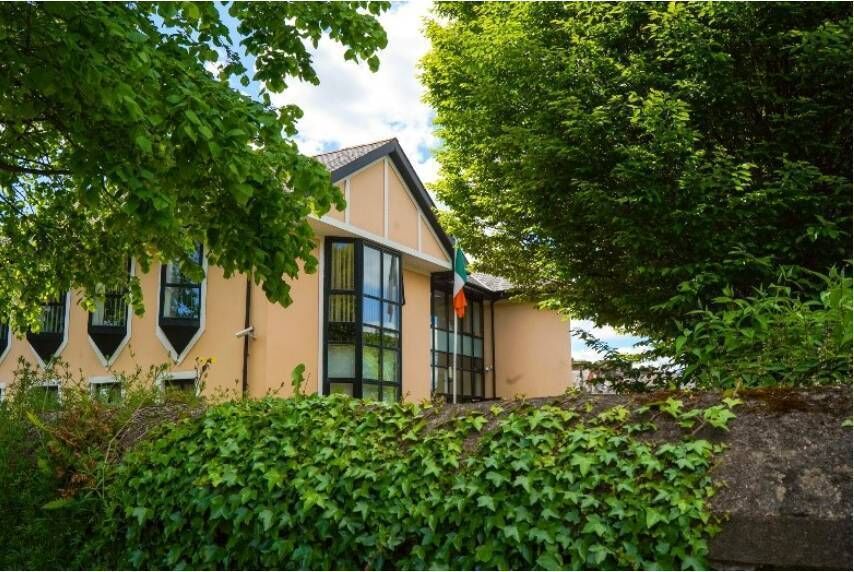
The Rectory, as it was known, was an imposing Victorian building originally built in 1889 which stood on a half-acre site, and had been the residence of the Dean of St Finbarr’s Cathedral. Planning was granted for a substantial two-storey extension, combining a period building with an ultra-modern facility.
The building and refurbishment took a considerable time and the building was finally ready for occupation in 2001, as one of many changes in a two-year period.
This move to the Mardyke coincided with Bart Bambury’s retirement after a huge commitment to the development of teacher education, lasting almost 30 years.
He was followed by Michael Jackson, one of those who pioneered the establishment of the Teacher Centre in 1973, who served as director for approximately one year, and then James Mulcahy, who took over as director in 2002 and served until 2015.
The growth in the number of centres nationwide led to the official name change from Cork Teachers Centre to Cork Education Support Centre, which coincided with the expansion of the rollout of the revised primary curriculum as well as numerous initiatives at second level, including new subject options, as the improving economic climate of the Celtic Tiger years ensured resources were provided for teacher in-service.
Advance
“This was a huge advance on previous in-service provision — schools were to be closed for three days a year, trained by practising teacher tutors seconded from their own schools,” said Mr Horgan.
“This modern and professional CPD provision covered one subject per year … beginning in 1999-2000 and concluding in 2007.
“Teachers now had the time to devote time free of teaching duties to a modern system of in-service, provided with lunch and even mileage expenses in certain circumstances — a far cry indeed from our founding fathers of the 1970s.”
James Mulcahy retired as director after 13 years of service, and was replaced by Niamh Ní Mhaoláin in 2015, during which time the Department of Education changed the terms of secondment for directors of education support centres to a five-year maximum secondment, so Niamh returned to school in 2020.
During her service, she continued with the rapid expansion of activity in the centre with new programmes and initiatives.
The windows in the older building were replaced, major energy upgrades were implemented, and staffing was increased to meet the increasing level of activity in the centre.
Mr Horgan continued: “However, life changed for all in the centre with the enforced closure of schools and much of society with the outbreak of covid-19 in March 2020.
“Niamh, as director, aided by a supportive staff and management committee, rose to the challenge and implemented system changes to enable the staff to work from home and initiate the new era of online webinars as a support for teachers, SNAs [special needs assistants], pupils, parents, and the wider educational community.”
When Seán Horgan took over as director in October 2020, covid restrictions and lockdowns ceased all activity in centres nationwide, staff worked from home, providing the best possible service to schools in the circumstances, and any initiatives that could not go online were cancelled.
He shared that Cork, like other centres, upgraded their IT equipment so that they could adapt as much of their offering as possible to be delivered virtually.
“Ironically, the covid pandemic witnessed a tripling in the numbers of teachers/SNAs availing of online training/local course programme. The convenience of being able to access training online resulted in the dramatic decrease in numbers attending face-to-face courses in centres,” Mr Horgan said, explaining that the numbers attending face-to-face events and courses are still below pre-covid figures but they are improving all the time.
Discussing taking the helm in the middle of a global pandemic, the director told The Echo: “It was very difficult, because it’s hard to see a centre that is normally bustling and packed every day empty, but we’re very lucky that we had systems in place when everything had to go online.
“It was late 2021 before we started having people back in again, it was in a limited way with masks and social distancing.
“Thank God we’re coming out now, and things are getting very busy, there’s lots happening in the senior cycle in particular.”
There are new obstacles arising all the time, with Mr Horgan describing the increased energy costs associated with the current cost of living crisis as “a major challenge to centres” as they try to rebuild activity after the pandemic.
Senior cycle reform is on the horizon as junior cert reform is almost finished, while on a primary school level there is a new maths curriculum to get trained up in.
Mr Horgan concluded: “Centres have gained a lot of experience over the past 50 years and face the future with confidence.”
Celebration
In October last year, a celebration was held to celebrate five decades of hard work in the education sector, which was attended by people associated with the centre over the years.
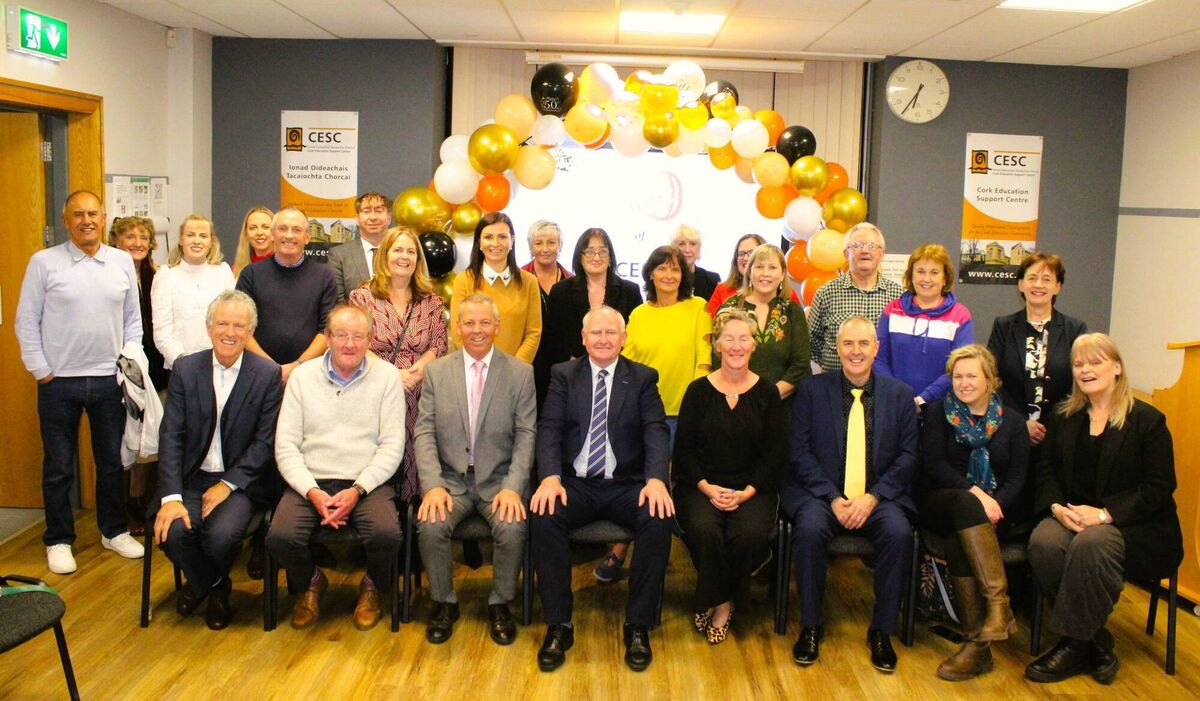
There were about 60 attendees, including family of Bart Bambury and Michael Jackson, former directors, officials from the Department of Education, and many who were involved in the setting up of the centre in the early days.
Chairwoman Bláthnaid Breslin opened proceedings with a short speech, commending the director and staff for the great work being done in the centre supporting school communities, before Director Seán Horgan gave a brief presentation on the establishment of the Cork Teachers’ Centre in 1973 and the history of the centre over the past 50 years.
Assistant Chief Inspector Martin Lally delivered a short address on the work of centres and of CESC in particular, instancing his very positive experiences as a service user of the centre when he was a young teacher himself.
Proceedings concluded with a humorous few school-related sketches and stories from seanchaí Paddy O’Brien, a retired teacher himself.
Many agencies, national programmes, and unions were represented, along with many members of the Retired Teachers Association who had been very active in the establishment of the centre and supported it over the years.
Seán Horgan told The Echo that “it was a great opportunity to catch up and reminisce”, and that everyone enjoyed looking at books, school posters and photographs from over the years.

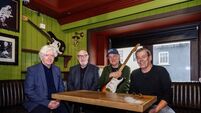





 App?
App?


